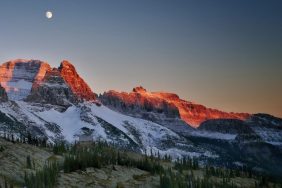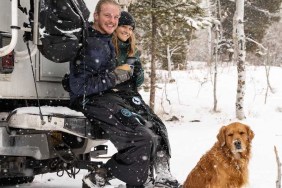 At some time in your life, you’ve been lost. It may have been driving around an unfamiliar area, or forgetting where you parked the car or even how to exit a doctor’s office. If you were really unlucky, you got lost in the wilderness while hunting. Regardless, you have probably felt that momentary panic of confusion that comes with being lost. Humans have that unsettling feeling of being lost for a reason and when it really counts, you had better be prepared for that one time when a harmless moment of confusion turns into a serious lost-in-the-woods situation.
At some time in your life, you’ve been lost. It may have been driving around an unfamiliar area, or forgetting where you parked the car or even how to exit a doctor’s office. If you were really unlucky, you got lost in the wilderness while hunting. Regardless, you have probably felt that momentary panic of confusion that comes with being lost. Humans have that unsettling feeling of being lost for a reason and when it really counts, you had better be prepared for that one time when a harmless moment of confusion turns into a serious lost-in-the-woods situation.
Let someone know your plan. Preparation is under-rated. If you only plan a day hunt, the most important thing to do is tell someone where you are going and when you plan on being back. The reasons are obvious, but knowing someone is missing you can not only help your moral in the field, but it can help others find you.
Carry the Essentials. You should always carry some essential items. Survival is dependent on food, water, shelter, warmth and getting found. The following items that will help you survive do not have to be large or heavy. In fact, you can make a survival kit that will fit in a Ziploc bag that will easily fit into your smallest day pack.
Always take food and water. Snacks and a few bottles of water are probably sufficient in most cases, but having water purification tablets or a water filter will help you stay supplied with the most important ingredient of hydration. Always carry additional snacks in the form of protein and high calories. This will provide energy to move and energy to help your body stay warm.
Seek Shelter. The next necessity for survival is shelter. It doesn’t make sense to pack a tent on a day hunt, but you can pack a space blanket and take a good knife and some parachute cord. These are light and compact and easy to carry, and they will allow you to rest and stay out of the elements.
Stay Warm. You should always have fire-starter material. This can be as simple as some paraffin covered matches or a cheap gas station lighter. If you are wet and cold, it could take a day or longer to build a fire with a bow or even flint and steel; a lighter or matches could mean the difference between life and death. It’s also practical to carry a fire starting chemical. There are commercial fire-starting materials that light even when wet, but you can easily make some by taking a handful of dryer lint and smearing it with petroleum jelly. Store this in a film canister and you have an instant resource available.
Help Yourself Get Found. Finally, no one wants to stay lost, so be prepared to help yourself get found. As mentioned above, always tell someone the general area you are going and when you plan to be back. They need to know where you are to find you. Some simple devices can help as well. Pack your cell phone if usable, and check out a satellite phone or a SPOT personal tracker. SPOT is a newer device that can either send out a pre-programmed message to home with your gps coordinates (saying you are okay), or send an SOS with your gps coordinates to 911.
These simple items, which will fit in a small bag to place in your backpack, can ensure peace of mind while you are hunting in the wilderness, or they can mean you survive and will be found if the worst happens and you become lost.








